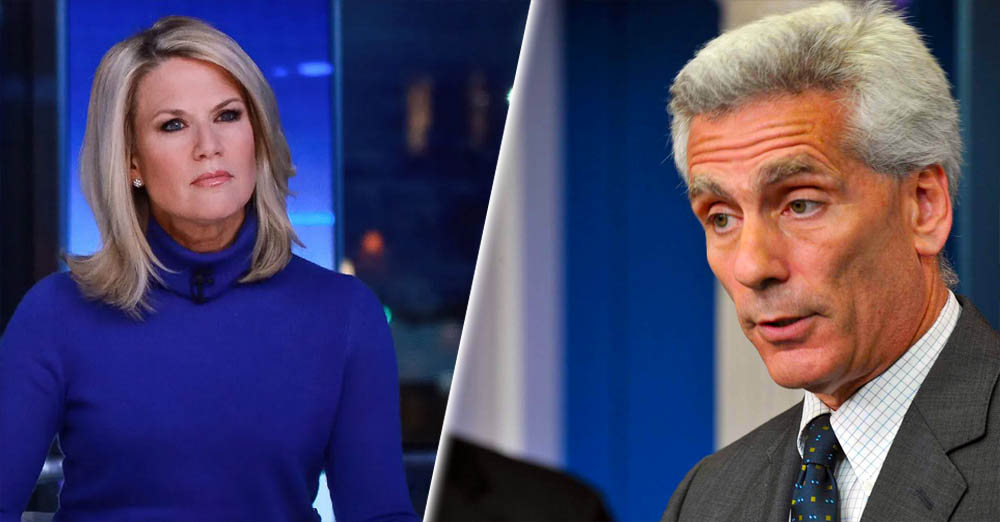
OPINION: This article contains commentary which may reflect the author’s opinion
Those who are promoting the government’s student loan forgiveness initiative have arguments about doing so.
Those who are against the government paying off loans for those with tax money have moral and financial arguments against the initiative.
Moral considerations on the pro side are that those who have received a college education just deserve to have their debts forgiven.
Moral considerations on the con side are that the money to forgive the debts will come from taxes, in other words from the working American, many of whom paid their own college debts and/or the debts of their children or who never went to college, entering the workforce after high school without the benefit of extra education.
Financial considerations revolve around the questions of feasibility.
Can the United States government afford to spend taxpayer money forgiving debts when the deficit is as high as it is?
Fox News anchor Martha MacCallum recently debated on air with a Biden administration financial advisor.
On a recent broadcast, MacCallum was grilling White House economic adviser Jared Bernstein on the issue and fired questions at him.
She asked the question of who is paying for the $20,000 in student loan forgiveness provided to Pell Grant recipients and $10,000 for borrowers making under $125,000 a year.
The economic adviser argued the policy will be paid for by the price of the budget deficit being reduced by a significant amount more than the cost of student loan debt.
MacCallum imagined a scenario where she had $15,000 in credit card debt and she is handed $5,000, she now has $10,000 in debt and does not have extra money to spend.
“So how is that something I can use to pay for furniture for my house? I can’t, that’s not money I have now,” she said.
MacCallum argued the U.S. continues to have a huge deficit and is spending more than the nation has.
She cited a University of Pennsylvania Wharton model which predicted that student loan forgiveness will cost over $1 trillion, claiming the cost will be closer to $24 billion.
Bernstein came back with his answer.
The economic adviser said the deficit is being reduced more than the cost of student loan relief.
His answer assumes that student loan relief should be happening, and is a finite part of the equation, and also there is nothing better to do with the money.
“Okay, well, hold on, and let me suggest how you’re doing so,” he interjected. “The question on the table is is it accurate to say that we are reducing the deficit more than the cost of student loan forgiveness and the answer is unquestionably yes, okay? I hope that’s pretty straightforward.”
Bernstein then stated that the United States is way ahead financially, and has plenty of money to spare.
“The way to think about this is that the government is taking in way more in both receipts and spending way less than we have been in prior years,” he said.
He disputed the Wharton model but offered no opposing fact or model to support his point.
“Well you say people can look at money by numbers in a lot of different ways and the Penn Wharton model says it’s gonna cost $1 trillion. So it’s simply not true.”
At one point, Bernstein accused MacCallum of twisting his words.
“Hold on, hold on, I’m not going to let you do the thing where you recast what I said totally differently,” he said. “What I’m saying is very straightforward. We are reducing the budget deficit both in this year and last year far more, multiples more than the cost of student loan debt forgiveness. Very simple, very straightforward fact, so I just want to be sure that’s on the table.”
In other words, in his scenario the reduction in budget deficit should be used for debt forgiveness, not to pay off more of the trillions in deficit that still exists for the country.
By the end of 2021, the United States was $23.4 trillion in debt.
Reported estimates on the debt growth are around an additional $13 trillion before 2028.
MacCallum attempted to use even more hard facts to make her point about student loan debt forgiveness by the federal government.
MacCallum then turned to the legality of the policy, in which Bernstein argued the post-9/11 law, the “HEROES Act,” allows for them to enforce the loan forgiveness.
The law was first proposed in 2003 to grant debt relief for military members serving the U.S. in the wake of the 9/11 terrorist attacks.
So a law for veterans who have served their country is to be used to forgive debt for students who received and education for the money.
The anchor argued there may be legal challenges to the administration enacting the policy under the post-9/11 law.
Bernstein then accused MacCallum of trying to confuse the matter with her facts.
“The question on that table, I think you’re making this way too confusing,” he said, reports Daily Caller.
Source: The Republic Brief